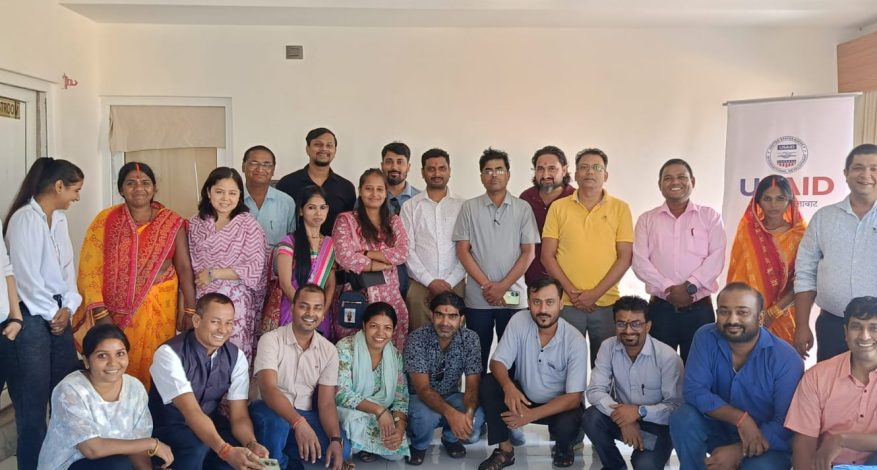Our History

Sano Paila: Forging a Lasting Legacy
Sano Paila has evolved into an organization that spans generations, its roots tracing back to a "little step" taken in 2006 by its founders, then in their early twenties. This initial spark has ignited a journey marked by hope, unwavering resilience, and transformative impact. In 2024, a new chapter unfolded as individuals, some of whom were once beneficiaries of our programs, were elected and appointed to the Governing Board—a testament to the enduring legacy of our mission and vision.
Our 18-year journey is a powerful testament to the transformative potential of community-driven action. Sano Paila boasts a rich history of community development, engagement, and public interaction. The organization was founded in December 2006, a critical juncture in Nepal's history, marked by the signing of the Comprehensive Peace Accord and the circulation of the first draft of the Interim Constitution. This occurred amidst a surge of voices advocating for ethnic minority inclusion. The nascent Madhesh movement, unfolding against a backdrop of socio-economic and political turmoil, underscored the urgent need for community engagement and inclusion. In this climate of uncertainty, our founders envisioned a path to unity and made the daring decision to establish Sano Paila—a commitment to forging a "simple yet powerful movement" that would inspire disenfranchised communities and actively engage them in community development.
Sano Paila's inaugural public program, held in early 2007 during the Madhesh movement, exemplified its commitment to inclusive dialogue. This successful community-wide collaboration addressed the political, social, and economic concerns of diverse stakeholders, including public leaders, government officials, and civil society, amidst state-imposed curfews, daily protests, and escalating violence in the Madhesh region. This event solidified Sano Paila's reputation for effective community engagement, inclusion, and public interaction.
The first governing board was elected and appointed following the founding committee's First General Assembly of Sano Paila in 2007. Throughout that year, Sano Paila and its members engaged with community members across various districts, gaining a solid understanding of the prevailing issues and challenges.
A significant early milestone occurred in December 2007 with the launch of Sano Paila's first program, Action Against Addiction and Crime (AAC). This initiative began as a pioneering project, employing unconventional measures. At a time when drug treatment and recovery were heavily stigmatized in Nepal, this project aimed to demystify the recovery process for the community. As part of the campaign, a temporary tent residence, equipped with essential accommodation, food, medical, and security facilities, was erected on Birgunj's main road. Sadhu Ram Khadgi, a heroin user for 26 years, volunteered to reside in the tent for 60 days to undergo recovery. His primary motivation was to demonstrate that if he, a long-term heroin user, could overcome addiction and lead a drug-free life, others could too. This also aimed to illustrate the challenges of withdrawal and recovery to the community. Upon Sadhu's recovery, Sano Paila established its first community rehabilitation center, a 5-bed treatment facility under his leadership. Sadhu worked with Sano Paila until 2014 and now leads a successful life with his own business. Since then, Sano Paila's drug recovery program (AAC link) has expanded, and today it operates Madhesh Province's largest community-based residential substance abuse treatment center, having treated and recovered approximately 3,400 individuals affected by drugs and crime.
Please see a timeline of our project establishments and implementation.
Throughout nearly two decades, Sano Paila has consistently driven positive change and promoted understanding through meaningful interactions, resulting in demonstrable personal, interpersonal, and systemic transformations. Since its inception, the organization has not only implemented a wide range of programs and projects in diverse sectors addressing complex challenges, but also has orchestrated numerous roundtables, community gatherings, awareness campaigns, conclaves, conferences, trainings, workshops, focus group discussions, and public events across a spectrum of sectors.
Today, Sano Paila stands as a compelling example of the profound impact achievable through collective effort. Our approach, rooted in diversity, inclusion, and community leadership, underscores our belief that incremental steps can catalyze significant positive change and cultivate engaged citizenship.
Please explore a historical timeline of our past activities and impactful projects:
